The Source looks back at some of our most read and most shared stories of 2018. Highlights include good news (a new chancellor), bad news (even light drinking increases risk of death) and who knew news (“collective narcissism” is real and Virginians have it).
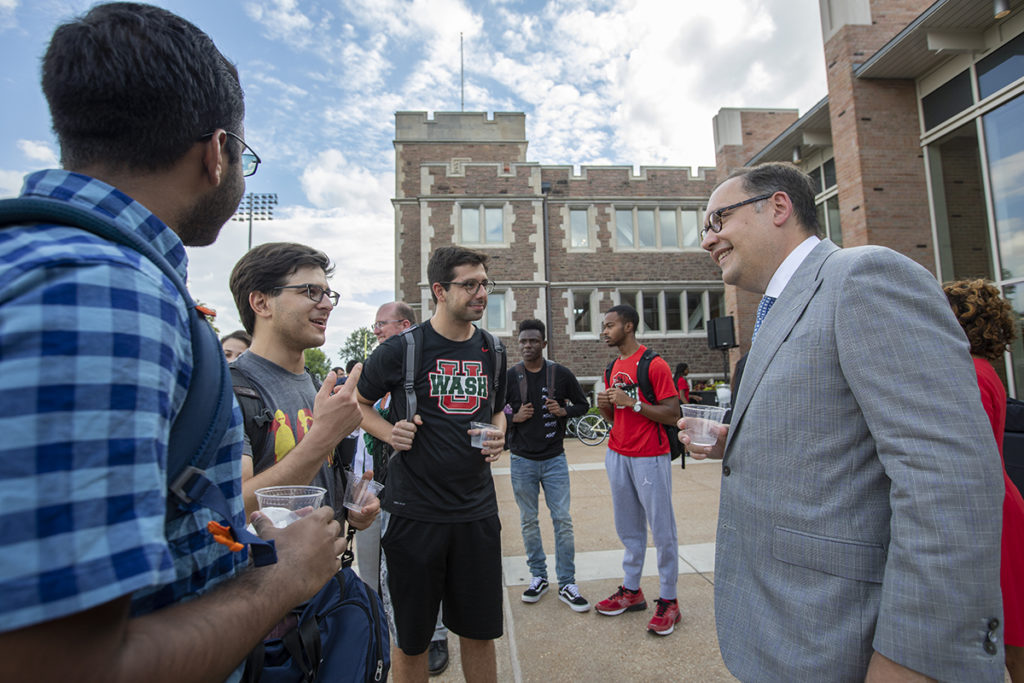
On campus: Proud of the past, poised for the future
Andrew Martin appointed 15th chancellor of Washington University
It was announced in July that Andrew D. Martin, a Washington University alumnus and former professor here, would return to serve as the university’s 15th chancellor. He will succeed Chancellor Mark S. Wrighton, who will conclude his term as chancellor May 31 after 24 years, a tenure that ranks among the longest in higher education.
St. Louis’ Olympic legacy to be commemorated on Washington University campus
Washington University in St. Louis, site of the 1904 Olympics, the first Olympiad in the Western Hemisphere, added another architectural jewel to its historic campus — an Olympic rings “Spectacular.” Gold medalist Jackie Joyner-Kersee and other Olympians celebrated the installation of the five-ring sculpture at the end of Olympian Way.
Leading Together: The Campaign for Washington University, a major multiyear fundraising initiative with an initial goal of $2.2 billion, ended June 30 with a record-breaking $3.378 billion in gifts and commitments. The campaign total includes an unprecedented $591 million for scholarships.
50 things every first-year WashU student must do
To help the 1,800 new members of the Class of 2022 acclimate to their new home, Washington Magazine offered its list of beloved traditions.
Grace Egbo, Student Union president and a computer science student, tells the tale of how she “broke Facebook” during her summer internship.
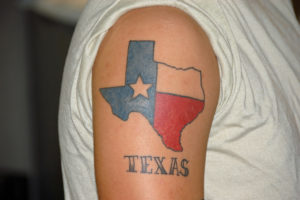
What were we thinking? Washington University researchers on what we believe and how we act
Sorry Virginia, U.S. history isn’t all about you
Research on “collective narcissism” from Henry L. “Roddy” Roediger, professor of psychological and brain sciences in Arts & Sciences, suggests many Americans have hugely exaggerated notions about how much their home states helped to write the nation’s narrative. Virginians, in particular, are especially vain, claiming responsibility for 41 percent of the nation’s history.
Stephen Nowlis, the August. A. Busch Jr. Distinguished Professor of Marketing at Olin Business School, argued in a new study that setting deadlines may seem like a good idea but, in practice, too many deadlines make us use our time less efficiently.
Survey: White Americans see many immigrants as ‘illegal’
Fueled by political rhetoric about dangerous criminal immigrants, many white Americans assume low-status immigrants from Mexico, El Salvador, Syria, Somalia and elsewhere have no legal right to be in the U.S., sociology research from Arts & Sciences suggests.
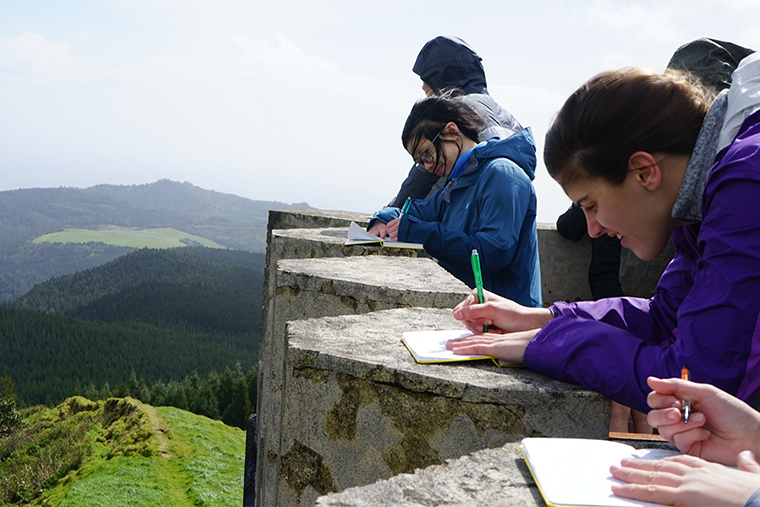
The world where we live: Washington University researchers travel the globe to discover hidden truths
Warming alters predator-prey interactions in the Arctic
Under warming conditions, arctic wolf spiders’ tastes in prey might be changing, initiating a new cascade of food web interactions that could potentially alleviate some impacts of global warming.
Seismic study reveals huge amount of water dragged into Earth’s interior
Slow-motion collisions of tectonic plates under the ocean drag about three times more water down into the deep Earth than previously estimated, according to a first-of-its-kind seismic study that spans the Mariana Trench. The work has important implications for the global water cycle, according to Douglas A. Wiens in Arts & Sciences.
Students in an undergraduate class in Arts & Sciences traveled to the remote Portuguese Azores archipelago to study field geology techniques in a rugged landscape shaped by volcanoes and shifting tectonic plates.
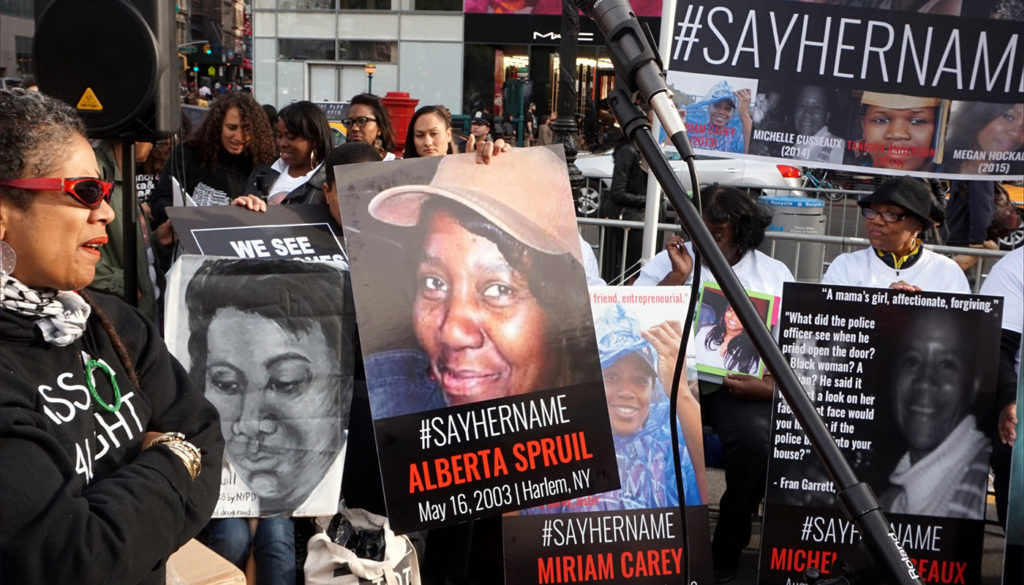
Gender matters: From interactions with police to surviving kidney cancer, Washington University researchers find that being a woman influences outcomes
Police kill unarmed blacks more often, especially when they are women, study finds
Black people, especially women, are more likely to have been unarmed when killed by police than nonblacks, and that risk appears to increase in departments with a greater presence of non-white officers, finds a new study of nationwide data led by Odis Johnson, of Arts & Sciences.
Study: Women better survive heart attacks with women doctors
If you’re having a heart attack and you’re a woman, hope a female doctor greets you in the emergency room. A review of nearly 582,000 heart attack cases over 19 years showed female patients had a significantly higher survival rate when a woman treated them in the ER, according to Seth Carnahan, associate professor of strategy at Olin Business School.
For women with kidney cancer, belly fat matters
Belly fat affects the odds of women surviving kidney cancer but not men, according to a new study by researchers at Washington University School of Medicine in St. Louis.
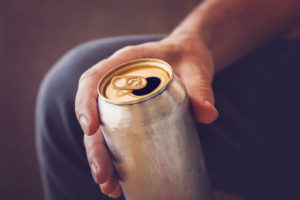
School of Medicine: Advancing human health (and taking the joy out of New Year’s Eve)
Non-opioid drug relieves pain in mice, targets immune cells
School of Medicine researchers found that inhibiting a receptor on immune cells called macrophages may help relieve pain in some patients, particularly those with chronic neuropathic pain.
Even light drinking increases risk of death
Analyzing data from more than 400,000 people, School of Medicine researchers found that consuming one to two drinks four or more times per week increases the risk of premature death by 20 percent.
Body clock disruptions occur years before memory loss in Alzheimer’s
Washington University School of Medicine researchers have found that circadian rhythm disruptions occur much earlier in people whose memories are intact but whose brain scans show early, preclinical evidence of Alzheimer’s.